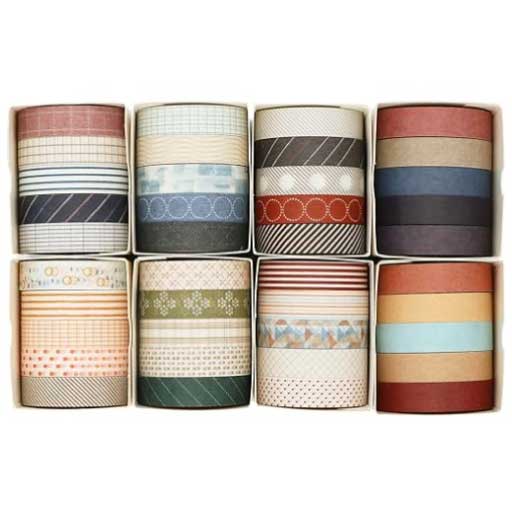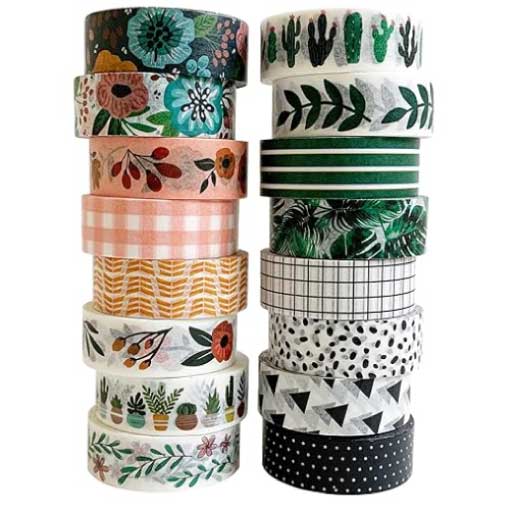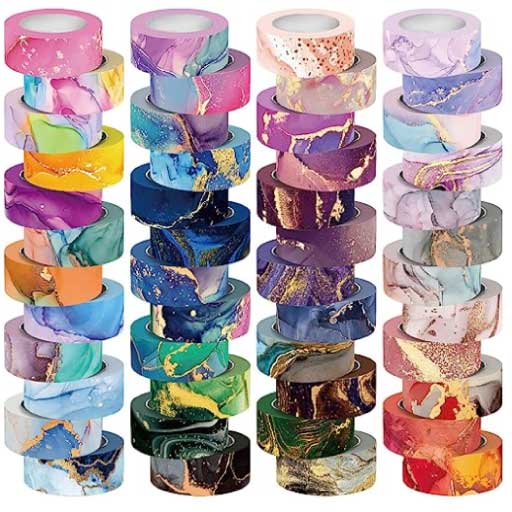Journaling basics are a cornerstone for effective journaling. Want to know the top 7 journaling basics, that will help you create a successful journaling routine? Then you are in the right spot!
Starting a journal is extremely exciting, but at the same time, it can be a bit overwhelming. If you are anything like me, you are doing all the research, you possibly can, to make sure, you know what you are doing. As an experienced journaler, I am giving you the top tips you should consider when starting your own journaling road.
Here you are going to learn all about selecting the right journal, what to write in your shiny, new pages and how to make a habit stick.
After learning all about journaling basics, you are going to be extra prepared for your journaling road and six steps ahead to becoming a pro journaler.
This post is all about journaling basics, which every beginner should know.
Table of Contents
Toggle1. Selecting the Right Journal
The first step in journaling basics is selecting the right journal notebook. As a journaling beginner, this step took me the longest. I wanted my journal to be perfect, to express who I am and to have all the different sections I would need for my journaling journey.
The thing is, If you are new to journaling, you don’t quite know yet what sections and topics you would like to cover in your journal. So my advice to you is don’t get stuck on finding the perfect journal.
I would recommend, that for the first journal you buy the cheapest journaling notebook, you can find. That way, you are not stuck on making it look perfect. If we start chasing perfection with journaling, then we are missing the point. Journaling is a mess organized. So, there is no perfection here.
Here, I put together some recommendations for you:

This lined journal notebook is cheap, a bestseller on Amazon and available in many colours.

This one is a year’s journal, perfect for a year’s worth of writing if you don’t want to constantly buy new journaling notebooks.

This Paperblank is the one I currently use. I love their covers, they inspire me and make my journaling enjoyable.
Remember, it is not the journal that helps you grow, but the habit of journaling. You will get to your perfect one once you figure out what you need.
2. Establishing Consistent Habits
Journaling habit is a muscle, that will grow and strengthen each day you choose to sit down and write your pages. Like many habits, journaling needs to become a part of your routine.
Here are some questions to determine, in what part of your day you can squeeze writing your pages.
- What activities can complement your Journaling Time?
- Consider integrating journaling into activities you already do, like drinking coffee in the morning or winding down before bed. Associating journaling with existing habits can make it more seamless.
- How long can you dedicate to each journaling session?
- Be realistic about the time you can commit. Whether it’s a quick 10-minute jotting or a more extended session, setting achievable goals ensures that journaling becomes a sustainable part of your routine.
- Can you leverage transition time?
- Use commuting or breaks, to sneak in a few moments of journaling. Turning idle moments into reflective opportunities can make journaling effortlessly fit into your schedule.
- Are You a Night Owl or an Early Bird?
- Determine if you function better during the night or early morning. Tailoring your journaling routine to your natural preferences ensures that you’re more likely to stick with it over time.
I prefer to journal in the morning after I eat my breakfast and right when my coffee is freshly brewed. I find that it prepares me for my working portion of the day.
And remember, even If you miss a day or two it is no big deal. Here we are not chasing perfection, but rather growth.
3. Goal Setting
Establishing journaling goals is important for several different reasons. The most important one is a clear direction and purpose for your writing sessions. Whether it is personal growth, self-reflection, self-discovery or any other reason, a journaling goal will give your journaling a specific focus.
Goals also act as milestones, fostering a sense of accomplishment and motivation. Don’t miss out on rewarding yourself with a little treat after successfully accomplishing your goal. Make your journey fun!
Personally, my goal is to be as truthful as possible in my pages. I am working towards understanding my feelings better and to do that, it is essential, that I bring vulnerability and truth to my pages.
RELATED POSTS
4. Utilizing Journaling Prompts
If you are stuck in your writing or unsure of what to put down in your journal, find some journal ideas or journaling prompts.
Journaling prompts are powerful tools that can breathe life into your writing sessions. You can explore a variety of prompts covering emotions, memories, and future aspirations. You can learn to look deeper into a specific situation or feeling and uncover a fresh perspective.
They can help you to be more creative, and inspiring, overcome your obstacles, set intentional goals, explore relationships and so much more.
5. Experiment with Different Journaling Techniques
There are a hundred different journaling techniques out there. From a dream diary to art journaling, bullet journaling, travel journaling, gratitude journaling, morning pages, freewriting, letter writing and so many more.
Find one which works best for your journaling goal and don’t be afraid to adapt it to your needs.
Personally, I love morning pages and letter writing. But honestly, I change my journaling entry depending on what my intention is.
6. Don't be Afraid to Get Creative!
The fun part of journaling is incorporating visual elements onto your pages. Journaling stickers and journaling doodles are the best way to make your journal more fun. You can find some doddle ideas on Pinterest!
Put pictures on the front page, write down your goal and put some glitter on it. Have fun, and be creative!
Find some inspiration on Pinterest!
7. Reflect and Learn
Journaling in its base is a reflection that helps you understand your thoughts, emotions and experiences. To have a good journaling routine, you need to reflect on your process and how can you improve it.
I would recommend you do your journaling reflection every week at the start of your journaling journey. Once you settle into a comfortable routine, then you can do it as you see fit.
Here are some questions that can help you:
- How has been my journaling routine so far? What have I enjoyed and what not?
- How can I better support myself on my journaling journey?
- Is there something I’ve been wanting to introduce to my writing? How can I make it happen?
- What setback have I experienced so far?







